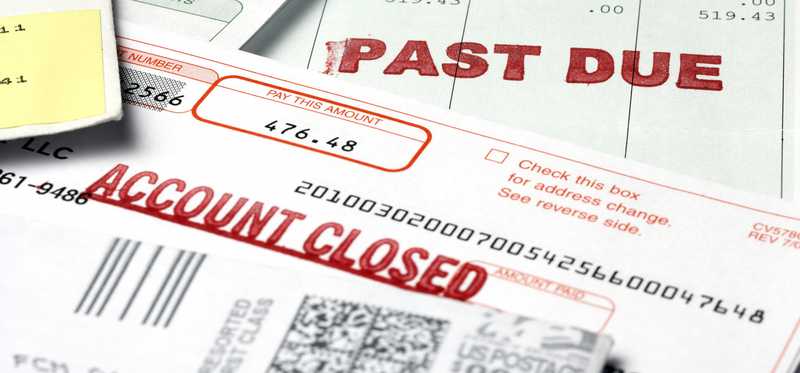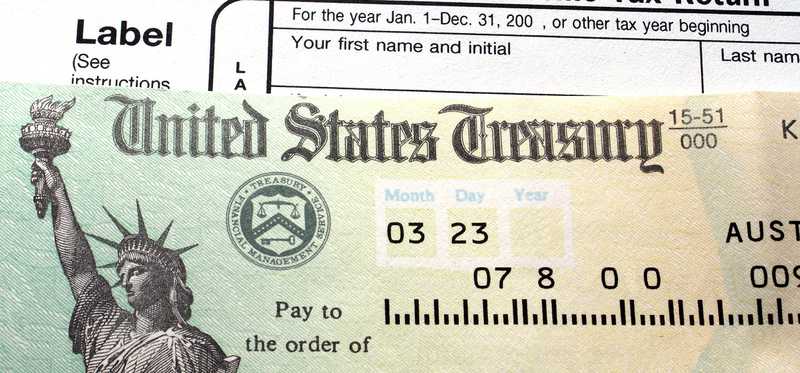20 Reasons You're Not a Millionaire

20 Reasons You're Not a Millionaire
What's holding you back?
There are very few people who wouldn't want to be a millionaire. While achieving that coveted status is still a challenge, it's getting easier all the time. A recent Credit Suisse report found that the United States has gained 675,000 new millionaires in the last year alone.
You could be one of them someday too. The first step is taking a hard look at the attitudes and decisions that are keeping you from getting where you want to be. Here are 20 of the most common ways people are subconsciously sabotaging their own financial dreams.
Previous
Next

1. You don't follow a budget
Following a budget is important for anyone, regardless of their net worth. Without one, you might do more spending than saving. That could lead to debt and it will certainly hamper your ability to prepare for your future.
Make a list of your monthly expenditures and subtract this from your monthly income. If you're spending more than you earn, you'll have to make some sacrifices. Decide what you're going to do with the extra money you have left over. Some should go toward retirement if you don't already have retirement contributions coming out of your paychecks. Put some toward your other long-term goals too, like buying a home, and then you can use the remainder for discretionary spending.
Previous
Next

2. You're staying in the same dead-end job
Some jobs have more growth potential than others. You might feel comfortable staying in a predictable, stable job, but if there's nowhere higher for you to climb, it could be holding you back. Finding new growth opportunities might mean switching employers, switching fields, or starting your own side business that might one day blossom into a full-time business.
Previous
Next

3. You're carrying a lot of debt
Nearly everyone carries some debt at some point in their lives, but large amounts of debt can cripple your ability to save for your future or improve your lifestyle. Taking steps to pay down your debt now will free up more cash you can put toward your other financial goals. Consider reducing your spending and putting extra money toward your debt. Use tax refunds and year-end bonuses too. Refinancing might help you score a lower interest rate.
If credit card debt is part of your problem, try a personal loan or transfer your balance to a card with a 0% introductory APR. Prioritize your card with the highest interest rate first. Make the minimum payment on all your cards and then throw all your extra cash at this one until it's paid off, then move onto the next one and keep doing this until you're debt-free.
Previous
Next

4. You shop impulsively
Everyone makes the occasional impulse buy, but for some people, it's more of a lifestyle than a small misstep. People who do this might accumulate a large amount of stuff over time, but they likely won't reach millionaire status because they never learned to save or to say no to themselves.
Try to institute a mandatory waiting period before you buy items off your want list to give yourself time to think about whether it's really a smart purchase. If it's a large purchase you don't have the money for right now, consider saving up for it over a few weeks or months rather than taking on debt to buy it.
Previous
Next

5. You don't invest
Some people shy away from investing because they see it as risky, and there is definitely an element of risk to it. But these people often overlook the guaranteed loss of money if you keep it in a savings account. Inflation drives up living costs over time, which means your dollars have less buying power every year. Yes, savings accounts do offer interest, but the national average is just 0.07% APY. Inflation averages about 3% per year. When you invest, you can earn as much as a 7% or 8% annual rate of return, depending on how you allocate that money.
Another barrier that keeps people from investing is a lack of knowledge. But today, there are robo-advisors that you can use even if you don't know anything about investing. You could also employ a professional to help you choose your investments and manage your money effectively.
Previous
Next

6. You invest too conservatively
Investing conservatively is better than not at all, but it could still cost you over the long run because your investments might not grow as quickly as they could have. When you're younger, it makes sense to invest more heavily in stocks. They're more volatile, but you have a long time before you presumably need to begin drawing upon this money, so you can ride out the ups and downs.
As you age, you want to invest more conservatively. You'll probably be retiring and living on a fixed income and you don't want to take the chance of losing all your savings on an investment that's too risky. But with people living longer, you don't want to go too conservative too quickly. The old wisdom used to be that the percentage of your savings you should invest in stocks was 100 minus your age, but 110 or 120 minus your age might be a better measure today.
Previous
Next

7. You don't set clear financial goals
Most people aren't likely to save just for the sake of saving, but they're more willing to do so when they have a clear idea of what that money is going to get them. You probably have some financial goals even if you haven't sat down and thought about them before. Maybe you want to buy a home or a new car, take a vacation, or retire by a certain age.
Think about what kind of money each of these goals will take and start budgeting for them. You might find that with a little diligence, you don't need to be a millionaire in order to achieve many of the things that you want to do. Although if becoming a millionaire is one of your goals, you can start planning for it too by trying some of the other tips listed here.
Previous
Next

8. You don't act on your good ideas
It's easier than ever to start your own business and you may have even had a few ideas of what you'd like to do or a company that you think should exist. But few people are actually willing to make the leap.
In addition to more money, starting your own business can also give you more freedom and increase your job satisfaction. But if you are considering starting your own business, don't quit your day job right away. It can take a while to get a new business off the ground and you don't want to compromise your financial security in the meantime.
Previous
Next

9. You don't invest in yourself
Whether you're going to start a new business of your own or just move up in your existing job, it helps to invest in your education. Think about what types of skills are valuable in the type of work that you want to do and look for ways to develop that. It might mean taking a few professional development courses or going back to school and getting a new degree. Everything you learn is a new tool in your arsenal that you can use to increase your desirability to employers and boost your paychecks.
Previous
Next

10. You live beyond your means
A lot of people try to live like millionaires even when they aren't millionaires themselves. But the truth is, most people with a seven-figure net worth aren't that different from the rest of us. They're not out driving fancy sports cars and yachting between their multiple private islands. They still have a job and they still have a budget that they stick to.
Our media is always trying to get us interested in the latest and greatest thing, but it's important to be realistic about how these items are really going to impact your life. Don't buy things just because you think it'll impress others or make you feel rich. There's always going to be another thing you want and that cycle will never end if you give in to it. Instead of trying to look rich, focus on actually becoming rich by saving and planning appropriately for your long-term financial goals.
Previous
Next

11. You like to gamble
There is a small chance that you can win money -- possibly a lot of money -- by gambling. But there's a much greater risk that you'll lose it all. A few dollars here and there might not seem that bad, but over time, they can add up. For some, it can turn into a dangerous habit that costs them tens or even hundreds of thousands of dollars. Rather than buying lottery tickets or going to the casino, take that money and put it in savings or invest it instead.
Previous
Next

12. You don't expect to become wealthy
It doesn't sound like it would make much of a difference, but if you don't expect to become wealthy, you could be setting yourself up to fail. You might be less likely to try investing or start your own business because you just assume you can't make it work. It's true that some people have an easier road to wealth than others, but people from all types of backgrounds have become wealthy and you can too if you're determined enough.
Previous
Next

13. You view wealth negatively
Another thing that might hold you back from becoming wealthy is your own view of wealth. Some people tend to view the wealthy as greedy and unkind to others, but this isn't always the case. Many millionaires donate a lot of money to charities or start nonprofit organizations that help others. If you can overcome your negative view of millionaires, you might be more open to actively trying to grow your wealth, which you can then use to help others if you choose.
Previous
Next

14. You make a lot of unhealthy choices
Healthcare is expensive and it's only becoming more expensive all the time. We can't ever completely control our medical expenses. Even the healthiest among us occasionally get ill or injured. But some individuals, including smokers and obese individuals, are more likely to experience health issues. Your insurance may cover some of your medical costs, but you'll still have a deductible and possibly a copay. All of this is money that you have to divert from your other financial goals. Plus, if you end up taking on medical debt, this could have a long-term impact on your financial security.
ALSO READ: 3 Signs Your Health Insurance Plan Is Wrong for You
Previous
Next

15. You and your spouse aren't on the same page
When you're married, you and your spouse need to be on the same page about how you will manage your finances. If one person is a saver and one is a spender, this can create financial conflict and it could derail the couple's savings plans if the spender refuses to abide by any kind of budget.
All couples should sit down periodically to review their finances and discuss how they want to use their remaining funds after paying the bills. They should agree on how much each partner can spend on their wants and how they'll pay for large household purchases.
Previous
Next

16. You don't have an emergency fund
An emergency fund may not seem like a key to becoming a millionaire, but it's a cornerstone of your financial security. Your emergency fund covers unplanned expenses like a job loss, medical emergency, or insurance claim, so that you don't have to take on debt when a financial emergency arises. A single financial emergency that you're unprepared for can take weeks, months or even years to recover from, all the while you're not able to put any extra money toward saving for your future.
An emergency fund should contain at least three months of living expenses. Six months is better if you want an extra cushion. If you have high-deductible health insurance, make sure your emergency fund contains at least enough to cover this deductible in case of a medical emergency.
Previous
Next

17. You only have one income stream
Many millionaires earn money multiple ways -- by working a job, investing, or renting out properties to name a few. You can also use multiple revenue streams to your advantage, and they don't all have to require hard work. Renting out a spare room or property shouldn't cost you anything apart from occasional maintenance, and it can bring in several hundred dollars per month.
Previous
Next

18. You don't take steps to minimize your tax bill
Millionaires aren't just focused on how they can earn more money. They also do what they can to minimize how much they have to give back to the government. You can do this too. Money you contribute to tax-deferred retirement accounts reduces your taxable income for the year. You might also qualify for some tax credits and deductions that further reduce your bill. Consult a tax professional to figure out all the tax breaks you might qualify for so you can hold onto more of your hard-earned cash each year.
Previous
Next

19. You don't automate your savings
Automating your savings takes all the work out of it. You just set up a schedule and your bank will automatically transfer the money from your checking account to your savings or investment account at regular intervals. It's a great solution if you struggle to remember to save on your own. Once you've set it up, you can spend the rest of the money in your checking account guilt-free knowing the saving is already taken care of.
ALSO READ: This Easy Saving Strategy Can Give Your Retirement Savings a Big Boost
Previous
Next

20. You ignore opportunities to save
You probably pass up opportunities to save more than you realize. Newspapers generally conceal coupons that can help you save on groceries and everyday purchases, but often, they just go straight into the garbage. And many employers offer 401(k) matches to their employees to reduce how much the employees have to save for retirement on their own, but often, these matches go unclaimed.
Growing your savings is important, but you also should look for ways to reduce how much you're spending. Take advantage of these opportunities to save, even if it's just a few dollars. Put that extra money you would have otherwise spent toward savings and it won't be too long before you see it start to stack up.
Previous
Next

You're not there yet, but you could be
A million dollars in the bank might seem like a long way off, but for those who are responsible with their money and continually leaping at opportunities to increase their income, it's definitely possible. Try a few of the tips listed here to see what kind of a difference they can make for you.
The Motley Fool has a disclosure policy.
Previous
Next
Invest Smarter with The Motley Fool
Join Over Half a Million Premium Members Receiving…
- New Stock Picks Each Month
- Detailed Analysis of Companies
- Model Portfolios
- Live Streaming During Market Hours
- And Much More
READ MORE
HOW THE MOTLEY FOOL CAN HELP YOU
-
Premium Investing Guidance
Market beating stocks from our award-winning service
-
The Daily Upside Newsletter
Investment news and high-quality insights delivered straight to your inbox
-
Get Started Investing
You can do it. Successful investing in just a few steps
-
Win at Retirement
Secrets and strategies for the post-work life you want.
-
Find a Broker
Find the right brokerage account for you.
-
Listen to our Podcasts
Hear our experts take on stocks, the market, and how to invest.
Premium Investing Services
Invest better with The Motley Fool. Get stock recommendations, portfolio guidance, and more from The Motley Fool's premium services.